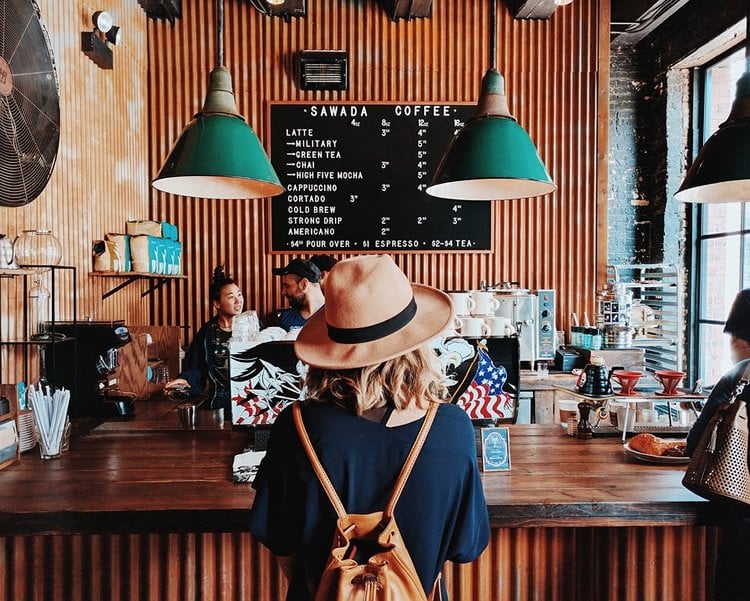Summary: Researchers have developed a new model that can predict when people are most likely to try out new products.
Source: University College London.
A new model to predict when people are most likely to try different products has been developed by scientists at UCL and dunnhumby, a customer science company.
The research, published in the inaugural issue of Nature Human Behaviour, could help to direct public health interventions aimed at encouraging healthier choices.
The team analysed anonymous purchase data from over 280,000 shoppers who regularly bought products in six categories: beers, breads, coffees, toilet papers, washing detergents and yogurts. Individual shoppers were represented only by anonymous dataset numbers with no personal or identifiable information.
“We developed a model to predict when somebody is ready to try a new product, such as switching from one brand to another,” says Professor Brad Love (UCL Psychology), senior author of the study. “Our model shows that the more people purchase a product, the more likely they are to continue to do so, until they reset the cycle by exploring a new product. To test our theory in the real world, we sent coupons to thousands of people and used the model to predict who would use them. The model worked – people who had recently switched brands were twice as likely to use the coupons to try a new product.”
Previous studies using monetary rewards have found the opposite pattern; the longer someone has chosen to receive a reward of known value, the more likely they are to choose an uncertain reward on the next try. The new research shows that this is different with subjective rewards, where choices drive preferences rather than preferences driving choices.
“One way to see it is that someone who drives a BMW becomes a BMW person rather than ‘BMW people’ buying BMWs,” explains Professor Love. “People might like to reflect on why they like certain products and be wary of buying the same brand out of habit. If you’re trying to start healthier habits in the New Year, my advice would be to stick with something consistently at the start so you’ll be more likely to keep it up in future.”

The study also found that shopping behaviour was consistent across the different product categories. For example, people who were more likely to ‘explore’ and try new beers were also more likely to try new washing detergents.
“If people show a particular shopping pattern for one product type, they tended to show it for the others as well,” says lead author Dr Peter Riefer, who conducted the study for his PhD at UCL and now works at dunnhumby. “This suggests that people have individual ‘exploration personalities’ when they shop, which is really remarkable given how different the six products were. Over a timescale of many years, the rate at which people explore is remarkably stable – people are always exploring at about the same rate. What we find is that within that stability there are these trends in exploration and exploitation.”
Source: Harry Dayantis – University College London
Image Source: NeuroscienceNews.com image is in the public domain.
Original Research: Full open access research for “Coherency-maximizing exploration in the supermarket” by Peter S. Riefer, Rosie Prior, Nicholas Blair, Giles Pavey & Bradley C. Love in Nature Human Behaviour. Published online January 9 2017 doi:10.1038/s41562-016-0017
[cbtabs][cbtab title=”MLA”]University College London “New Model Predicts When People Are Willing To Try New Things.” NeuroscienceNews. NeuroscienceNews, 9 January 2017.
<https://neurosciencenews.com/model-choices-psychology-5896/>.[/cbtab][cbtab title=”APA”]University College London (2017, January 9). New Model Predicts When People Are Willing To Try New Things. NeuroscienceNew. Retrieved January 9, 2017 from https://neurosciencenews.com/model-choices-psychology-5896/[/cbtab][cbtab title=”Chicago”]University College London “New Model Predicts When People Are Willing To Try New Things.” https://neurosciencenews.com/model-choices-psychology-5896/ (accessed January 9, 2017).[/cbtab][/cbtabs]
Abstract
Coherency-maximizing exploration in the supermarket
In uncertain environments, effective decision makers balance exploiting options that are currently preferred against exploring alternative options that may prove superior. For example, a honeybee foraging for nectar must decide whether to continue exploiting the current patch or move to a new location. When the relative reward of options changes over time, humans explore in a normatively correct fashion, exploring more often when they are uncertain about the relative value of competing options. However, rewards in these laboratory studies were objective (for example, monetary payoff), whereas many real-world decision environments involve subjective evaluations of reward (for example, satisfaction with food choice). In such cases, rather than choices following preferences, preferences may follow choices with subjective reward (that is, value) to maximize coherency between preferences and behaviour . If so, increasing coherency would lessen the tendency to explore while uncertainty increases, contrary to previous findings. To evaluate this possibility, we examined the exploratory choices of more than 280,000 anonymized individuals in supermarkets over several years. Consumers’ patterns of exploratory choice ran counter to normative models for objective rewards —the longer the exploitation streak for a product, the less likely people were to explore an alternative. Furthermore, customers preferred coupons to explore alternative products when they had recently started an exploitation streak. These findings suggest interventions to promote healthy lifestyle choices.
“Coherency-maximizing exploration in the supermarket” by Peter S. Riefer, Rosie Prior, Nicholas Blair, Giles Pavey & Bradley C. Love in Nature Human Behaviour. Published online January 9 2017 doi:10.1038/s41562-016-0017






